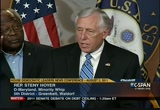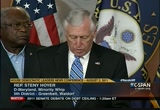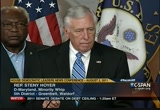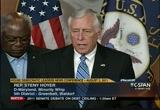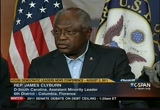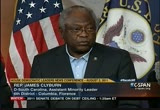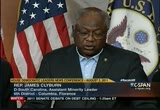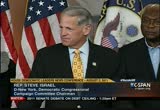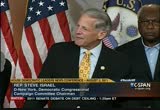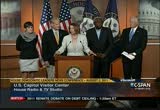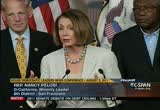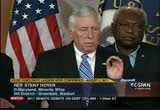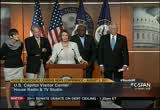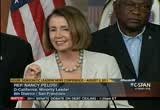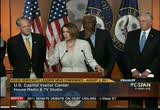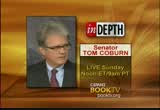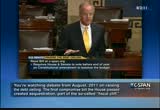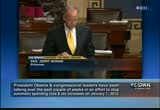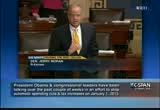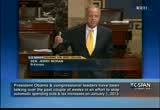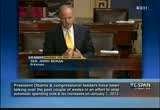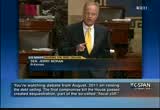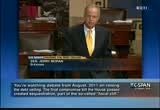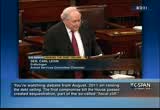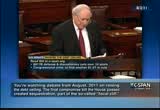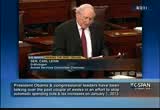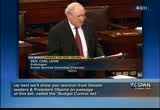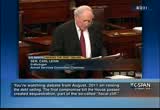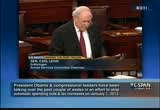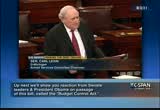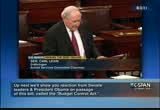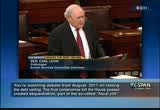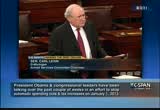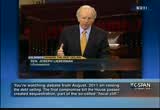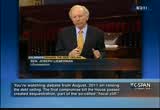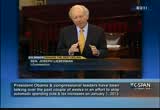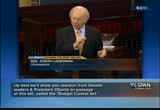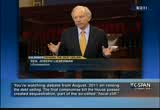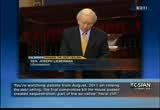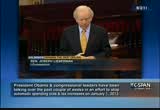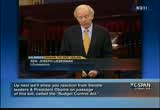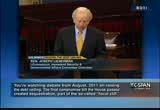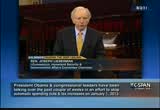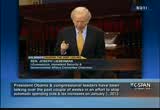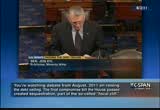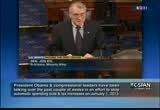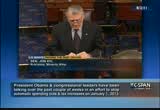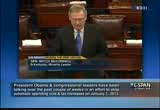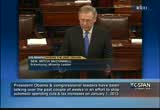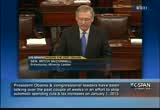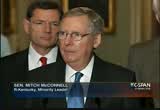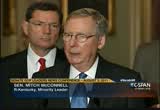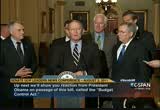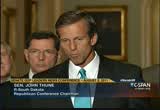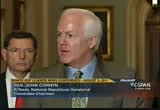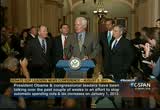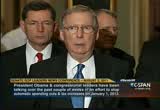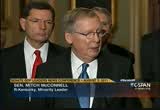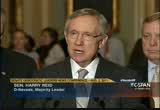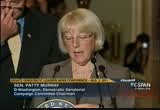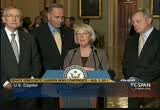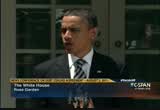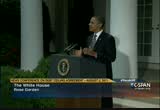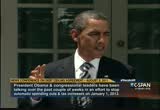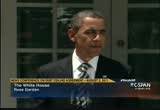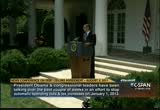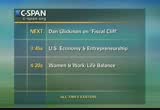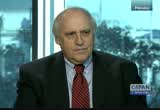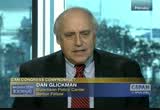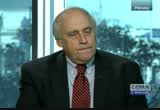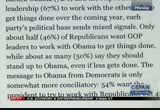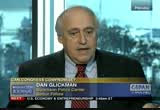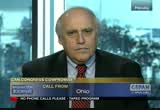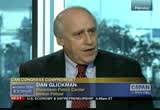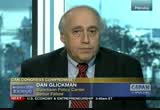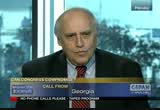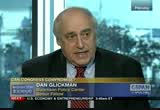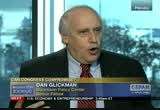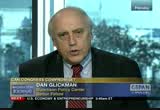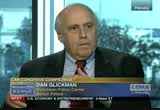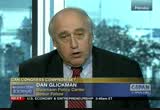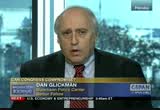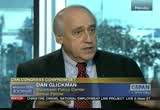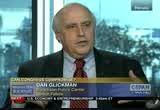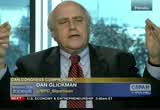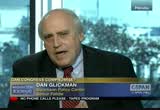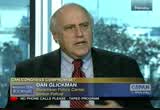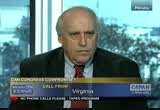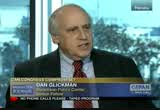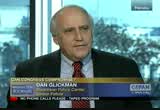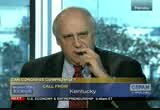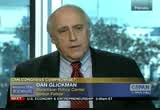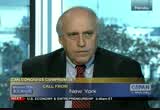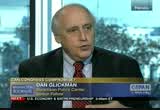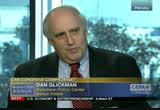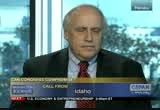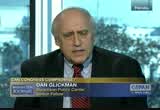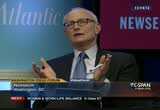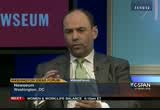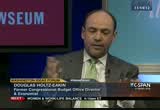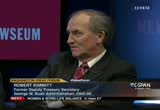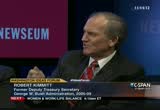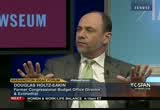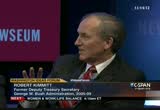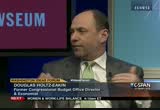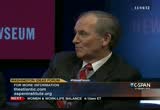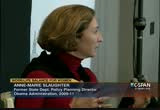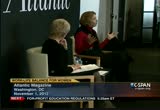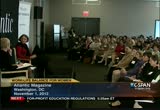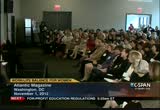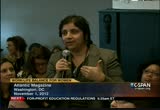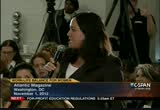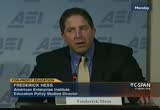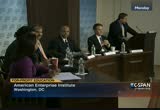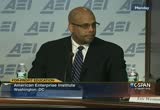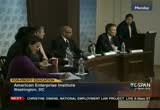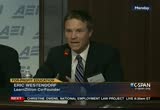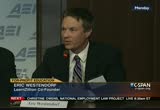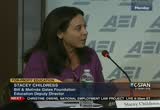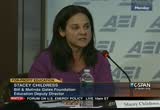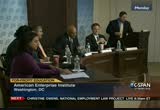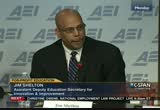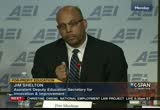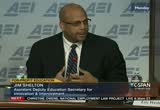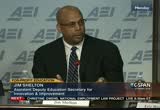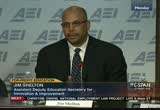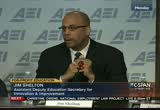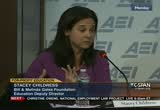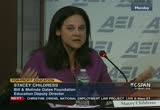tv Politics Public Policy Today CSPAN November 27, 2012 1:00am-6:00am EST
1:00 am
months on the job, no jobs bill for the american people. that is the net -- and that the director of the republican majority. democrats of focused -- have focused on our make it in america plan. keating middle-class jobs. it is essential to the growth of our whole economy. on our agenda, a money long list, is our competitors drop world all have strategies. we need an effective game plan to out-produce, out-innovate, out-build, and out-invest our competitors. we must develop plans to increase manufacturing and
1:01 am
manufacturing jobs. and infrastructure bank. with me on the podium is the chairman of the policy committee. who will champion the infrastructure which the president mentioned a few minutes ago. we need to facilitate the efficient, private sector investment and infrastructure. we need to compete from broadband systems. with an infrastructure bank, we will be able to out-build a partnership between the public sector and private sector. clean energy. clearly, that is the future. that is the vision we have of an america that has powered itself by clean energy. we need to invest in clean energy to create jobs and make america competitive in the most
1:02 am
important, new economic sector. china is doing that. europe is doing that. america must do that. it is doing it as a result of a bill we passed, the american recovery and reinvestment act. we need to continue on that path. currency reforms. under democratic leadership, we pass a bipartisan bill that sought to level the playing field by holding accountable companies that manipulate to gain unfair advantages. we know china is doing that. we know others are doing that. we need to pass legislation that will again send it to the senate a bill which will level the playing field for our manufacturers and our competitors. i am pleased to yield now to my
1:03 am
good friend from south carolina, the assistant leader of the house of representatives. >> thank you very much. despite coming up about 44 votes short of to 18, -- 218, to prevent our nation of being devastated, republicans in washington continue to play liberal games. they have turned the my way or the highway into my way or the runway. that is what is taking place. the federal aviation the administration has been bottled up now. this is the 10th day.
1:04 am
we have lost about $300 million in revenue. i am pleased the senate seems to be willing to go further on some of this. the legislation that seems to be agreed to, which is the house version leaves out a big chunk,. the contract in jobs being held that have already been, there is little that is more important to job creation than these small
1:05 am
airports. for my republican friends to continue to wreak havoc among the lives of those men and women, who are dependent upon these contracts in order to put food on the table, and in order for the ceiling over their heads, and prepare for a future for their children. this is unconscionable. i would hope we would hurry and get to the point of really setting aside political gains and start doing what is necessary to resolve these issues. the american people would like to see us resolve. let me conclude by saying,
1:06 am
energy. the quickest way, one of the most elementary ways of putting people back to work on the at a hurry, and having a tremendous impact for us to do something to pass what we commonly call [indiscernible] which will immediately create jobs. it is being held up by political sin and against these communities can be looked at. i would like to yield now. i am assuming i am yielding to
1:07 am
the chair of our policy. >> thank you very much. >> we cannot afford to have any more distractions. we have to do everything we can to create growth whil. it is time for the public majority to break this streak and start put real jobs legislation on the schedule. the president a few moments ago spoke and he talked about what ever we are doing, that we need to have a peak that is about running our economy. unless we can grow our economy, we are not coming to be able to put people back to work, a deal with our deficit, and we will not have economic security for the future. in order to create jobs and fiske our economy, we have to invest in energy production and
1:08 am
domestic manufacturing capacity. they are the engines of economic growth for us in the future. we have to go back to being the country that builds things, rather than the one that just consumes goods that have been produced overseas. with that in mind, i have championed the legislation to create a national infrastructure bank. according to a recent report, failing to invest in our nation 's infrastructure could cost the united states $129 billion a year and over the next 10 years. it reads, u.s. businesses added $430 billion in transportation costs. u.s. exports will fall. meanwhile, we are falling behind in the global economy. china invests 9% of their gross
1:09 am
domestic product in infrastructure. india, 5% and rising. in america, we spend less than 2% of gdp on infrastructure. it is a concept with broad and bipartisan support. it could help close the gaps. do something about bringing tele-communications across this nation. it could work to create jobs all across america. good jobs. that cannot be outsourced so we are once again making things in america, becoming more competitive in the global economy. this is a great nation. has been built on brick and mortar and fiber-optic spirit we have got to get back to doing that again. millions of families are struggling -- struggling right
1:10 am
now. we need to pass jobs legislation right now, including an infrastructure bank. i was pleased to see the president spoke about an infrastructure bank today. it will create jobs for investments and rebuild america. let me introduce to you the chair of our democratic congressional campaign. >> thank you. the legislation to extend the debt ceiling may not have been a great deal but it is now a done deal. we are moving forward into office and fend off holding republicans in the house accountable for eight months of wrong choices to the american people in two areas, jobs and medicare. house republicans made a decision. they were willing to close down the government, but they have not produced one single bill to open up small business in this country, not one to create jobs
1:11 am
in this country. house republicans made a decision. they made a decision 20 years ago when they said they would allow medicare to wither on a vine. a fight that battle relentlessly everything -- every single day. trying to pass a ryan budget which would add $6,000 for metal costs -- medical costs for senior citizens. they made the decision going into the debate on the debt ceiling that they would rather close down the government. we are calling this accountability august. the american people are going to ask their republican members of congress everywhere they go, why did you vote to end by medicare? you could have stood with me,
1:12 am
why did you stand with the big oil companies? when you could have protected my medicare, why did you protect corporate tax loopholes. i do not know what the -- loopholes? i do not know, but i am predicting it will be hot. they are going to spend their august defending. thank you. >> thank you. the chairman is one of the few democrats we can call mr. chairman. we are honored you are both here. thank you for your great work. i am proud of the work the caucus has been doing over time. on behalf of job creation, you heard what was said here. there is a tremendous need for rebuilding the infrastructure of america. it is in the trillions of dollars, just addressing the
1:13 am
building the of the structure -- the infrastructure. we will need public-private partnerships on how this is funded in a way that create s jobs. i want to mention mark, who has the bill on china's currency, over 170 signatures already, to discharge petition on that bill. it has already passed the house in a bipartisan way. we want it to come up again. this is not only about creating jobs. it is about developing small businessmen and -- in an entrepreneurial way, in a way
1:14 am
that takes people from survival to transformation of our country, back to before the last 10 years of recession and a financial crisis. they are willing to take risks and we can lead the way and continue to be number one. it is about innovation. america will continue to be number one. in the meantime, we have to make sure all americans but dissipate in the future economic prosperity of our country. >> i want to follow up on the congressman's comments. it seems the senate will probably not act when they
1:15 am
finish up their business today. legislators are about to go on recess past labor day. i am wondering if you think it is fair all of these members are going home for a month's vacation. >> we do not. it seems as if, just before we came in here, the house pass legislation. that is why i said in my statement, it leaves out the small airports. that is my understanding. i'm sorry? >> i want to say something on that. i think it is an example of what this republican majority and
1:16 am
house of representatives has done. they were clearly prepared to let america default for the first time in history on its debts unless they got their way. secondly, as you point out, they were prepared to leave washington, as they have now done, with almost 4000 federal employees out on the street and with over 70,000. we think the numbers as large as 90,000, people who are helping to help build, helping to expand infrastructure, helping to make sure our airports are safe and usable. and more efficient. they were prepared to walk away from here and leave almost 95,000 people without a job.
1:17 am
why? they passed a bill and said to the united states senate, either you take it our way or it will be no runway and no highway and no way. that is a perfect example of the politics, not of persuasion, not of compromise of coming together, but the politics of confrontation. my way or no way. senator reid is confronted with a terrible decision. my friends in organized labor are absolutely right on this issue. none of us and no republican would say to anybody, i want to be in an election in which everybody who does not come to the polls is a judge.
1:18 am
that is not how we run american elections. that is what was said to the senate. -- sent to the senate. is going to say, we are not going to leave washington with those out on the street as our republican colleagues would do. >> congressman, it seems to be incredibly emotional for a lot of members. can you tell us when you heard about this? what was it like for you and all of you guys? >> it was a great moment for our country because we had a person so highly respected, the most respected person in america, an
1:19 am
elected official in america, whose name is synonymous with inspiration, respect, courage, patriotism, and she really wanted to come. i will not go into the details of when we knew what and all the rest. i was not one who would have encouraged to to -- encouraged her to come. we did not think it would hinge on one vote. she felt so strongly, she wanted to come. we are very proud. i do not know when she leaves town. a few moments from now, she enhances the climate of bipartisanship and of our country working together. it was a great moment. when the green light went up on the screen, on the wall, next to her name, it was a highly emotional moment for us.
1:20 am
there it was. in green. just the last name. the witness a great deal of history. nothing like what is happening today, when a person so respected, so courageous, came back here because she wanted to save our economy. going to default would be harmful. >> when you make your appointment to this new committee, is that going to be something? >> let me thank you for a knowledge thing that one of the things we were successful ain is that we did protect the
1:21 am
1:22 am
>> when i do. you'll be among the first to know. >> i wanted to ask you along those lines, what kind of people are you looking for? anyone for the caucus -- >> for the past few months, the people have wondered why we are we had the vote, we don't like the deal but it is a done deal. i have no intention for the nextwe had this responsibility, we the nature will be self- evident. place where we are just talking about the process of this. we have to be creating jobs. >> with the super committee, will you be taking people that are more apt to compromise as opposed to people that will be home taking down the same road of the stalemate. >> de caucus is very united.
1:23 am
reducing the deficit with a strong element of growth and job creation as part of it. we are fooling ourselves if we ever think one element on the table whether it be cuts, if we are serious as our caucus is about reducing the deficit, we will have to be made. that is considering revenues and a very strong way. some of those revenues had been mentioned by israel, it is subsidies by corporations or jobs overseas, we have a long list now. mr. hoyer said it, job creation is deficit reduction. again, we are pretty unified in our commitment to reducing the deficit by creating jobs and by having a fair and bipartisan approach to getting it done. don't expect to spend every day
1:24 am
talking about the process of that. small business creation and entrepreneurial fears that has been the source of job creation and our success over the past thank you very much. >> tomorrow morning, jack gerard talks about gas prices and alternative energy efforts. then, long-term unemployment benefits and where they may end
1:25 am
in january without congressional action. after that, dominic chu. plus, your e-mails, phone calls, and tweets. 7:00 a.m. eastern on c-span. >> we have military-run schools. the average cost of an educated child in that school per year is $50,000. almost four times what the rest of the public education costs. in the vast majority of our bases, we use public schools. we could use that money and pay every proposal system and say billions of dollars -- every public school system and save billions of dollars. >> you can talk with the old
1:26 am
book -- with the oklahoma senator about people cliff. he has written several books and reports. join our three-hour conversation. live sunday at noon-eastern. >> talks continue today between white house and congressional leaders trying to work out a deal to avoid the year-and fiscal cliff. we will take it to august of 117 debate -- august 2011 senate debate. >> this is a significant -- significant point in our country's financial history. decisions have to be made.
1:27 am
. on march 22 of this year, i wrote president obama a letter indicating that i could not vote to raise the debt ceiling unless i saw substantial reductions in spending and structural changes in the way we do business in the united states congress and washington d.c. why i say there is no joy for me to be here today, in my view, we have failed to do either one.
1:28 am
it would be irresponsible for us not to raise the debt ceiling. it would be equally irresponsible if we raise it without meeting the criteria i have outlined. while we will have a discussion of all of us as it continues today, and we will probably play quarterback after this is over to figure out what we have accomplished, in my view, it is important to know there are no such in this bill. there is only a reduction in the growth of spending. that reduction is so small. $21 billion reduced in the first year, in the growth and spending. dn kansas, we hear the worl
1:29 am
"billion" and we think it is a lot of money. it is. they will think we are finally doing something significant. the truth is we spend $4 billion more each day than we take in. at $21 billion, if realized, will be gone in less than one week. this legislation does not cut spending. we promote a balanced budget amendment, which i think is critical to our success in changing the structure of how we do things here, but there is no balanced budget amendment to the united states constitution, or one that will necessarily be sent to the states for ratification our national debt will continue to grow and at the end of 10 years, if everything in this legislation is
1:30 am
accomplished, and i think we have to be skeptical about that, our national debt will grow and reach $22 trillion. 10 years from now, with the legislation in place, $22 trillion. over the next three decades, our debt will become three times the size of our e -- our entire economy. we talk about changing the way we look at things in washington d.c.. we talk about reducing the growth of spending by the amount we are raising the debt ceiling. can you a imagine a family back in kansas congratulating themselves without changing the spending patterns. they cut the budget today.
1:31 am
we are not doing that. they do not just slow the growth. they do not wait for 10 years to see it realized. this is a significant problem. our -- we will be downgraded. even with the passage of this bill, the effects will be some edible, the downgrade will occur regardless. this is the time for us to make the tough choices as opposed to kicking the can down the road one more time. i am honored to serve kansas here. athe economy matters and the
1:32 am
first thing we have to do is get our fiscal house in order so the economy can grow and people can find jobs my assumption is the legislation i oppose will pass today. i pledge myself to my kansas constituents that i will work hard to see that every dime that is possible to be saved occurs and i will redouble my efforts to see we grow the economy and put americans back to work. the revenues we need to balance our books are not increases in taxes. we need a strong and growing economy so every american today can put food on their family's table and prepare for our own retirement and we are blessed to see every american child be able
1:33 am
to pursue the american dream. >> to say the legislation before us is not ideal is surely an understatement. the notion that our deficit problem can be solved solely by our federal spending, flies in the space -- in the face of our experience. tax cuts for the wealthy and egregious tax loopholes are significant culprits in our fiscal crisis. i believe too many republicans are influenced by an ideology so extreme that it promises to wreak economic havoc if they do not get their way. it is an approach that prevents the balance deficit reduction the american people right the support. the result is this legislation incorporates policies profoundly unfair to middle income
1:34 am
americans. seen in isolation, this is not a good bill. the no-public policy exists in a vacuum. despite its many flaws, this legislation must pass. let me explain why. there will be a number of negative consequences in results of this bill's passage, but there will be more dire, but chances -- dire consequences if it does not pass. the choice we face now today with this vote is whether to accept a flawed bill or to watch the united states the fault on its obligations -- default on its obligations.
1:35 am
we have taken many steps in the past three years to try to restart job creation in this country. those efforts would come on done if the crisis that would follow, our failure to pass this bill. one of the things that is right about this legislation is that it avoids a misguided demand that we have another round of crisis in the negotiation over this issue in just a few short months. a short-term increase to the deficit is what house republicans demanded, and it would have frozen financing for businesses and consumers. we cannot put the american people and the american economy through that again. in balances bill's and focusing solely on spending
1:36 am
cuts it does contain a mechanism that can force acceptance of what our republican colleagues have refused to accept. their efforts require a shared sacrifice. 2011 is the year of unbalanced spending cuts. 2012 must be a year of shared sacrifice, one in which the president uses the pulpit to lead the nation to except the notion that everyone, including the wealthy, must play a role in reducing deficits. democrats have repeatedly emphasized the sport -- this point. one of the largest factors
1:37 am
contributed to our deficits are the bush tax cuts. they grow the gap between the wealthiest among us and working families. medium household income today is lower than it was in the mid 1990's. the wealthiest americans are doing better and better all the time. a few decades ago, the wealthiest 1% of all americans, took in 10% of all income. today, it is 24% these numbers reflect policy choices. too often, the choice has been to pay lip service to the middle class while driving income inequality to levels not seen in 80 years in this country. the failure to ask all americans to join in the
1:38 am
sacrifices required to reduce our deficit flies in the face of logic and fairness and threatens to increase the growing gap between upper and middle income families. democrats have proposed common- sense steps to address the failure to include more revenue and to promote shared sacrifice. we propose to restoration of the 39.6% tax bracket for the wealthiest americans who make nearly $400,000 a year or more. most democrats support the end of tax breaks for the massively profitable oil companies. we seek to close loopholes. and to end tax breaks that let highly paid hedge fund managers enjoyed a lower income tax rate
1:39 am
than the rate their employees pay. too many have denied the need for these changes. there is a chance this legislation may finally force consideration of added revenues. and the shared sacrifice that is missing from the cuts in the legislation. why is that? under this legislation, we will face a choice. we must agree before the end of the year the deficit reduction of at least $1.20 trillion over 10 years will stand by as an automatic budget cutbacks and to accomplish the goal. a bipartisan joint committee of 12 members of congress will meet and develop a deficit reduction plan that avoids those automatic cuts. that joint committee will have broad powers to review and propose changes to spending and to the tax code and to add
1:40 am
revenue. revenues will finally be back on the table. where they have always belonged. meeting that $1.12 trillion goal will not be easy. it is achievable. to those who have been unwilling to compromise can recognize revenues must be part of the equation. nobody should be eager for the automatic cuts that would otherwise take effect. many of those cuts would be unacceptably painful and damaging. the very idea of those automatic cuts is that they are so unacceptable that few of us will want to see them in action. most of us will be willing to compromise in order to avoid them. congress used this approach one before -- once before.
1:41 am
we passed required cuts if targets were not met. the framework for to their causes legislation is based on that model. "it was never the objected to trigger the sequester. the objective was to have the threat force compromise and action. " it did. in 1990, when facing the possibility of unacceptable ol cuts, president bush adopted a balanced deficit-reduction plan that included significant new revenues.
1:42 am
i believe any plans from the bipartisan committee that tells the test of balance will have no chance to pass in the united states senate. members in the committee must truly be willing to lead, put aside partisanship and rigid ideologies, if we are to avoid triggering unacceptable cuts. success will also require presidential leadership and stronger use of oil it. -- of the pulpit. we are willing to put forward plans that include painful cuts to priorities. with a vote to approve this bill, which we must, it is my hope that we have reached the high tide of an ideological
1:43 am
movement that has sought to have tax cuts for the wealthy while imposing increasingly draconian cuts on american families. it threatens economic calamity if that movement does not get its way. the era of slashing programs that help middle-class americans with no shared sacrifice by the wealthiest among them, that must end. and give way to an era in which fairness and balance guide our efforts. passing this legislation today will hopefully drive us to make that transition. >> as everyone else expressed their support for the supposal -- this proposal, no one seems satisfied. that is inevitable. it is a classic moment for a very big challenge we face of
1:44 am
whether we see the glass half full or the glass half empty. the work out ways what disappoints us. for me, the positive outweighs the negative. my fears is that we are not doing enough in this agreement. what makes the most happy about it, this is a bipartisan compromise that really does turn the corner, turn the ship of america, away from greater and greater deficits and a greater national debt and in the direction of balancing our budget once more. reestablishing classic american values of discipline and thrift,
1:45 am
and concern about our future, an investment in our future, which we have lost in our federal government, through the work of both parties, executive and legislative branch of our government. it is a bipartisan agreement. at a time where this chamber has become destructively partisan and and it is encouraging to me that it is bipartisan. at a time when our city has become ideologically rigid. it is clear if you look at our history that we only make progress when the compromise. we are such a big, diverse country, with some many different opinions. this is a bipartisan compromise. it is the beginning of a long, hard march back to fiscal responsibility.
1:46 am
back to a balanced budget. what troubles me about it is that the bipartisan compromise represents a bipartisan agreement by each party to yield to the other party's most politically and ideologically sense of priorities. for democrats, it is to protect and had been spending. four republicans, it is to not raise taxes. the reality is we have got to do some of " if we are going to get our country back into balance. because this agreement does not really touch the entitlement programs, but tickly medicare, which is growing faster, bigger than any other government program, it puts all of the burden of getting back toward
1:47 am
balance in our budget, on the so-called confectioneries spending on our budget, that is about one-third of federal spending. about 60% is the entitlement or manage their programs. -- mandatory programs. it does not ask much of anything of the 60% that is growing rapidly, entitlement spending, and as a result, it the special committee created in this agreement does not work its will, and involve itself in but -- in entitlement reform and tax reform, then the trigger, the automatic spending cuts, are also from confectionery spending, asking the third of the budget to pay the way, even
1:48 am
though it is a small part of the responsibility for an increase in government spending. that would have a devastating affect on national security. it would dramatically undercut our defense. some of the programs are the great investment programs of the future. energy, etc.. i really hope congress will redeem our homes by dealing with the entitlement reform. the center of local, and i in june introduced a proposal that would take steps to save medicare for the almost 70 million people who will be on medicare in one decade. and reduce the enormous costs of places on our task there. people think the payroll reductions and the premiums they pay pay the total benefits of
1:49 am
medicare. it is not so. the average in our lifetime takes $3 out of the system for every dollar they put in. you just cannot run a program long term like that. who picks up the rest? the taxpayers. it is a big part of why we are getting into a deficit. you cannot save medicare by leaving it as it is. you can only save medicare, and i want to, i believe in the program. the senator and i put in a plan that would save over $600 billion in medicare costs over the next dent it -- over the next decade, and reduce medicare unfunded liabilities by $10 trillion. i know our plan contains some strong medicine. that is what it will take to keep medicare alive.
1:50 am
we believe our plan administers the medicine in a fair way. the senator and i will forward our proposal for consideration. we hope they will include parts of it in their recommended legislation. i also believe it is essential for the committee to act to alter -- to bolster the solvency of social security. many argue it is not true -- contributing to the deficit. what is in the trust fund? it is notes and the united states government has given to the social -- trust fund. we are bound to pay the money back. they will continue to do that in increasing numbers for the
1:51 am
foreseeable future. the social security trust fund has to come to the federal government to redeem the bonds the government gains. how does the government payback the social security trust fund? by borrowing over the next two decades $2.60 trillion currently held in i owe you's plus interest. social security will only be able to pay benefits to the extent they are covered by incoming receipts. that will mean a sudden, shocking, painful 23% cut. we have got to begin to enact reforms now too slowly save social security. we can do it. my colleague and i are working
1:52 am
to get on a rigid working again on a social security for american seniors in the long term. i hope to do that in time to also forward to the special committee for their consideration. we cannot protect these entitlements and also have the national defense we need to protect us in a dangerous world while we are at war. we cannot not touch the entitlements or raise taxes and create tax reform proposals and expects to protect all of the programs of investment and our future that mean so much to america's family, -- families, education, alternative energy, investments in our transportation system. to be able to do all that in the right way, we need congress to
1:53 am
take an ax steps. this is a significant beginning. as imperfect as it is. if i may finally, for all of us, and particularly for the president, the speaker, the majority leader, the republican leader in the house, the democratic leader in the senate, and everybody who worked so hard here, coming close to the kind of grand bargain i think we needed, the simpson-bowles adopted, recommended to us, which i support, and the president's and speaker banner -- speaker boehner were closed but it fell apart. to set it in a broader context,
1:54 am
a piece written today. here is what they say to take us back and remind us we fill the seats for a short time period. they write today the debt ceiling crisis has prompted predictable comments about how partisan and dysfunctional our political system has become. if the process was a spectacle in a three ring circus, as someone put it, the shows are none other than james madison and nafta and alexander -- james madison and alexander hamilton. it is working exactly the way our founders intended. i go to the end of their peace.
1:55 am
piece.y point -- peac rarely do used to achieve all or most of the goals in [indiscernible] it is the beginning of a consensus and a good start toward genuine change. the framers would be pleased at the spectacle. >> i will support this legislation, but with serious lead to -- serious reservations. this extension is not the one piece of legislation that will change everything wrong in washington. it is a reversal of previous tax policy, with some movement
1:56 am
down the road to fiscal responsibility. it sets us on a course that, if we adhere to it, would eventually enable us to balance our budget, drawn down our debt, with incredible programs on a sustainable path, and create conditions for strong, economic growth. it could have been better. that is true. politically, the white house and the democrats in congress would not agree to more. they control this. a second premise of republican leadership is that the united states government needs to pay its bills to fill commitments to american people, from social security to national defense. we have obligations republicans insist must be met. the fault was not an option fau-
1:57 am
default was not an option. it meant not only constraining washington spending through greater accountability, but preventing job killing tax hikes. in this, we succeeded. there is nothing in this legislation that would cause future tax increases. if there were, i would not support this legislation. with this legislation, we have prevented tax increases. cut spending over the next 10 years, and created a mechanism to address additional savings, especially in medicare, medicaid, and social security, all of which will eventually default on their commitments.
1:58 am
here is why i have such serious reservations. in an effort to extract a pound of flesh from republicans, the white house, frustrated it could not raise taxes, insisted on massive cuts in defense spending over the next 10 years. potentially $18 billion less than the president's own budget, just for next year. moreover, the white house insisted the defense sought for an additional $492 billion in cuts over the same time, if the selected committee fails to reduce or congress refuses to adopt recommendations on how to cut overall government spending to meet the goals of the bill.
1:59 am
these cuts in defense were not the result of careful planning and analysis. they were just arbitrary percentage is thrown out in negotiations, totally under on --totally it was designed to be so large an unimaginable, so irresponsible, that congress would approve the recommendations appeared armageddon was used to characterize this. could you imagine anything more irresponsible for the commander in chief of the military to promote, not just promote, but insist on, and and the destruction of the
2:00 am
the consequences could dare result. this should never have been agreed to by members of congress but most of all should never have been promoted by the president. to me it comes close to violating our oath of office and the president's responsibility as commander in chief but it is done. my vote will not change it. the best way for me to avoid this armageddon is to stay many the fight and if necessary, urge my colleagues to disregard this provision. 60 senators would have to agree. but i cannot imagine the senators and even the president when it comes to the hypothetical choice of knowingly destroy our military capacity when we would have the
2:01 am
ability to prevent it. as reckless as this president is to contemplate much less incapacitate our military, i cannot imagine that the american people would countenance such action. so as i evaluate the work of the committee, if anyone says to me, well, remember the trigger is armageddon for the military, my response would be let's take that debate to the american people and let them decide. the thought that this trigger would force senators to make unwise concessions underestimates the american people's commitments to their own security. the white house is so draconian that it will not work. even this president could not implement it. so because we cannot default in our commitments, because we have to started somewhere on our new journey toward fiscal sanity and this is a good
2:02 am
start, because we have to focus on job creation not more taxes that will kill job creation, we should don't this legislation. but because of its irresponsible and dangerous even cavalier treatment of national defense, we will need to work very hard to restore spending for our national security and commit to reject the threat of armageddon inserted into this bill by the white house. >> over the past few weeks congress has been engaged in a very important debate it may have been messy. it might have appeared to some that their government wasn't working but in fact, the opposite was true. the push and pull americans saw in washington these past few weeks was not gridlock. it was the will of the people working ilts out and a political system that was never meant to be pretty. you see one reason, america
2:03 am
isn't already facing the kind of crisis we see in europe is that presidents and majority parties here can't squst bring about change on a dime. as much as they might like to. that's what checks and balances are all about. and that's the type of balances americans voted for in november. the american people sent a wave of new lawmakers to congress in last november's election was a very clear mandate, to put our nation's fiscal house in order. those of us who had been fighting the big government policies of democratic majorities in congress, welcome them into our ranks. together, we've held the line and slowly but surely we've started turning things around.
2:04 am
that's why those who think that no problem is too big or two small for government to solve are very worried right now. they're worried that the american people would win the debate we've been having here about the size and the scope of government. and that the spending spree may actually -- actually be coming to an end. they can't believe that those who stood up for limited government and to actually change the terms of the debate here in washington but today, they have no choice but to admit it. now, i know that for system soft our colleagues, reform isn't coming as depast as they would like. and i certainly understand their sfration. i wish we could stand here today and say something much more ambitious.
2:05 am
but i'm encouraged by the thoughts that these new senators will help lead the fight until we finish the job. i want to assure you today that although you may not see it this way, you've actually won this debate. in a few minutes the senat will vote on legislation that represents a new way of doing business in washington. first it creates an entirely new template for raising the nation's death rate. never again will any president from either party be allowed to raise the debt ceiling without being accountable for it by the american people.
2:06 am
it will provide another opportunity for us to focus on the subject raised by the request to raise the debt ceiling. so we've we'll be back at it. probably in the early part of 013, try to continue to make progress towards reducing the size and scope of government and reducing our spending. this kind of discussion isn't something to dread. it's something to welcome. and while the president may not have particularly enjoyed this debate we've just been through. it was a debate that washington very much needed to have. as for the particulars, this legislation caps spending over the next 10 years with a mechanism that ensures -- actually stick. it protects the american people from government default. it puts in place a powerful join committee that will recognize further cuts and much
2:07 am
needed reforms. it doesn't include a dime, not at dime in job killing at a moment when our economy can least afford them. and that they get to vote. this is no small fete when you consider that the president was still demanding tax hikes as part of any debt sealing increase. as recently as may the president's top economic advisor said "it was end zone." it's worth noting that two and a half months later, and the president is now agreeing as a condition to trillions of dollars in spending cuts. so let me be clear, the
2:08 am
legislation in the senat is about to vote on is just a first step. just a first stope but it is a crucial step towards physical sanity and its remarkable achievement given the lekts. now, we've had to settle for less than we wanted. but what we've achieved it and we did it because we had something democrats didn't have. republicans may only control 1/3 washington but the american people agreed with us on the nature of the problem. they know the government didn't aexhume kate $14.3 million in debt because of tax.
2:09 am
tlt solution isn't to spend more. it's to spend less. now, neither side got everything it wanted in these negotiations. but i think it was the view. our view was we'd get as much spending reduction as we could from a government we didn't control. and h's what we've done with this bipartisan agreement. this is not the deficit reduction package i would have written. the fact that we could add another $7 trillion to the debt over the next two years is certainly nothing to celebrate. but getting it there, the president continued to defend until recently is no defeat either. and slowing down the big government freight train will give us the time we need to
2:10 am
work toward a real solution or give the people to decide. so much work has been made. sit on the powerful cost cutting committee to put forth the interest of the american people and the principles that i thought for in this debate first. before we move to the next step, i'd like to say a word about tom -- to us. i'll started with speaker boehner. he helps by insisting the debt limit would be wrace -- ways. the speaker and i have worked shoulder to shoulder and it's been a real pleasure.
2:11 am
heem he's been a real shoulder. so i want to thank the speaker and the entire relationship on the house for standing up. and i want to thank my republican colleagues for their support. we wouldn't be there either. i -- we may disagree a lot but i hope everyone realizes it's never ever personal. we can bring that when it comes down to it, we'll get together. i also wanted to thank the president and the vice president and everyone on their staff who believed as we did that despite our many differences we could all agree that america would not default on its obligations. it's a testament to the good
2:12 am
will. both sides we were able to reach disagreement. i'm pleased we were able to work together to avoid it. now, this bill does not sovepl the problem. but it at least forces washington to admit that it has one. the bill doesn't solve the problem but it forces washington to admit that it has one. and it puts us on a path to recovery where nowhere near where we need to be in terms of restoring it. we have changed the debate we're headed in the right direction. it happened because of the american people demand it. soo in the end, we're back to where we started.
2:13 am
the only reason we talk about it instead of gring it. because they believe they could have a real impact on the selection of their government. baseball cap? and it's through continued participation passion. as winston churchhill once said, courage is what it takes to stand up and speak. courage is also what it takes to sit down and listen. i can't think of a better way to sum up this last year and in particular these last few months right here in washington . the american people want to see accountability and corporation in washington and i want to see that we're working together to get our fiscal house in order.
2:14 am
this legislation doesn't get us there but for the first time in a very long time, i think we can say to the american people that we're finally facing in the right direction and for that we have them to thank. >> majority leader, the senator from nevada. >> the eyes of the world have been watching washington this week very closely. while they witnessed a lot of political wrangling, they also saw congress make some historic important decision and developed a -- developed. our country was literally on the verge of a disaster. was on the brink of a disaster. we were able to avert that
2:15 am
disaster. i feel it's important -- could we have order, please? >> the senat will please come to order. we welcome to all our visitors. i want to remind you that the you are to be quiet under senate rules. >> i appreciated that he has stated on the floor. i've gotten to know him and speaker boehner especially the speaker. yet, it's not what the product we have here. the product we have here is one of compromise. winners. we're not trying to outline who
2:16 am
the winners are. it's the american people. eso did my friend but that's the way legislation works that's the way compromise works. i can't let go who spoke about the new senators and the new members of congress who came here. i welcomed them all. but a result of the tea party direction of this congress the last few months has been very, very disconcerting and very unfair to the american people. we must go forward. also, mr. president, i recognize we have to do more. of course we have to do more and that's why we have the joint committee set up. and i'll talk about it right now.
2:17 am
the american people are not empressed with the no-no revenue that they want this arrangement. the richest of the rich have contributed nothing for this. my friend talks about no new taxes. mr. president, if their three was right, the huge taxes that took place during bush eight years. they have not helped the committee. the loss of 8 million jobs. two wars. these tax cuts. if the tax cuts were so good then the economy should be driving. if you go back to the prior eight years during president clinton's administration. 23 million.
2:18 am
10 years and 7 trillion. the compromise we reach isn't perfect. and we're going to send legislation, the president today that will not only avert a default. he said enough, -- not enough. to assure congress that we will continue working. i will say it again. i appreciate my friend. they've worked in decades past. there's no write why they can't work out. we need to do something because the trigger that kicks in is
2:19 am
very, very ditch difficult we need to do this. and it has to be one that's fair. it can be -- there bhust a sharing -- there must be a sharing of sacrifice. it's fair. no revenue is really too bad. we need to have a fair approach to this joint committee. i'm confidence we will do that. the trigger mechanism kicks in. this committee who was going to have the point -- the appointed. we've had two days as early as
2:20 am
the senate saying me no revenue. otherwise, the trigger's going to kick him. the only way that you can arrive at a fair agreement is have equal sharing. it will be painful. each party if they do the right thing it will be. there has to be some revenue that matches that. >> that was set at the date from august 2011. the negotiations continue on the fiscal cliff, we look at how we got here. senator dick durbin will talk about efforts to resolve the fiscal cliff. starting at 11:00 a.m. eastern. tomorrow on washington journal, jack girard of the american petroleum institute talks about
2:21 am
alternative energy efforts. and christina ellen discusses long-term unemployment benefits ending in january without congressional action. after that, bloomberg television reporter dominate chu about what investors are doing with their money. washington journal is live at 7:00 eastern here on c-span. now, reaction from senate republicans to the passage of the debt ceiling increase part of an august 2011 deficit reductn agreement. mitch mcconnell and other republicans. >> i know you are going to miss this, you just hate to see us go. we are going to miss you, too. obviously, the biggest concern is jobs and the economy.
2:22 am
things have actually gotten worse since the president have to take -- has taken office and we need to move in a different direction. the american people do not believe that raising taxes and killing jobs is a direction that we ought to take. the bill that we passed avoided doing that even though the administration desperately wanted to raise taxes. every meeting i am in talks about the regulatory burden we have experienced throughout the american economy. center burasso -- senator burasso has been our leader on that. my answer is always the same, we have to quit borrowing and spending, quit trying to raise taxes comment and let the private sector flourish so that we have a chance again to have a growing economy that will
2:23 am
produce more revenue from the government. that should be our focus not only at home, but when we come back here. one thing that the administration could do is get the trade agreements appear. they enjoy bipartisan support. we hope they will be waiting for us when we get back from the august break. >> it is amazing to see the white house press shop and the eloquence and the campaign team of the president can override e substance of issues with rhetoric. it is very interesting that the moment we have the debt ceiling issue behind us, the president decided to give it -- pivot to job creation. republicans have never taken their eye off of job creation.
2:24 am
in a very specific example of the things that we have to deal with during this debate about the deficit and the debt ceiling, one of the taxes the president proposed that we increase the was the subject of a report by his own small business administration for the office of advocacy. they have reported that it can force small businesses to close, that is a direct quotation. while the president today would have all of us believe that he has gotten a light and he can give it to job creation, i can ask what about that debate that we had over the last month or so about the effects of your tax proposals on job creation. that is why republicans were so fixated on stopping these job- killing tax increases.
2:25 am
>> senator rubio that washington is talking about the dead and americans are talking about jobs. the president has pivoted to jobs, and he begins by blaming his predecessor. we do hold him responsible for making the economy worse. he has made it worse in terms of unemployment, in terms of the federal that, higher gas prices, individual health insurance premiums are higher. home values are down. the high cost of energy plans, a big wet blanket for the private sector job creation and given it a chance, we gotta make it better. fewer regulations, less debt, more exports, your health care
2:26 am
maates, using less. our goal is to make it easier and cheaper to have private sector jobs. i want to welcome the white house and administration democrats after 2 1/2 years of piling up the record that senator alexander just alluded to. if you think about the legacof this administration, there are massive amounts of debt. unemployment is over 9%, we saw the anemic growth numbers at a downward revision of 1.9%. this economy is sluggish because the job creators out there are worried about what washington will do next.
2:27 am
that is probably verified by the u.s. chamber of commerce. 64% said they would not add to their payrolls. a 12% said they would cut jobs, and of the businesses that responded, half of them said the reason was economic uncertainty. because of washington d.c. policies and this administration's economic record that has had a job-crushing agenda since the day they came into office. i am delighted to welcome them to the debate after two and a half years of being missing in action. >> the president came to office and unemployment was 7.8%. millions of americans looking for work and can't find someone to employ them. a lot of that has to do with regulations coming out of washington.
2:28 am
31 days of july, 300 new expensive regulations and 10 of those are major regulations of over $100 million. and the impact on those businesses. the total impact is $10 billion when you look it hundreds of regulations in the month of july alone. this administration seems to be fixated on finding ways to make it tougher and more expensive for the private sector to create jobs in america. >> looking forward, one of the most important things to come out of this agreement is a commitment for a vote on the united states constitution some time by october. when you look at everything congress can do, it is one of the biggest chaenges we have had, which is why a balanced
2:29 am
budget amendment is absolutely essential. all 47 republicans have co- sponsored a version of that amendment and what we have the opportunity to do is to take a small step in the right direction towards fiscal responsibility, to finish that job for a balanced budget amendment both in the house and the senate and sending it to states for eradication. we know there is a lot we can do between now and the time the amendment is ratified. but ultimately, will we be -- will leave by a living by the same rules -- will we be living by the same rules as families? i think we have all seen that this is the ultimate measure of fiscal responsibility and i congratulate our leadership for getting our commitment, we can't get a vote on anything unless harry reid agrees to give us a
2:30 am
loovote. this is perhaps the most important thing to come out of this agreement. >> we will take a couple of questions. >> [inaudible] >> i am going to be considering these appointments and we will be acting as a result. >> [inaudibl >> does anybody have the top light on that? -- line on that? >> [inaudible]
2:31 am
>> i don't have it in my head, but we said the number on the discretionary side for 12 and 13. it should be immediately available to you. that allows us to have a normal appropriations process. normally, the senate would pass the budget and it has been several days since we passed a budget in the senate. you reconcile the differences and you get the top line of how much you're going to spend. not being optimistic, we have put in for the measu that was just passed and the president will sign. the top line for fiscal year 12- 13. >> the white house was saying that there are 350 billion and even further cuts in the joint committee. >> of the joint committee is not
2:32 am
going to gridlock in my opinion. it is designed to function at tackle some of the very difficult problems that we have been unwilling or unable to deal with. the truste appointed by the president, both plans are in troubl we have not been able to do anything on the tax reform side. we decided to concentrate power in this joint committee because we have an extraordinary problem. the normal way we do business was adequate, we wouldn't have a 14 trillion dollar debt and $15 trillion in unfunded abilities. it will be voted on before the end of the year, and i will focus the lot on what would happen if they did not function.
2:33 am
>> does anybody want to tackle that? >> [inaudible] >> we are so late in fiscal year 12, it begins at the end of next month. it will probably be difficult to have a normal appropriations process, and they will have to be clumped together. knowing what the top line is going to be, it is our hope we will be able to do the basic work of government. reporting bills, getting them done.
2:34 am
we are so late, it will be difficult to have that kind of process. as you know, we end up with either a c.r., that is not the best way to do it. i don't see any way to avoid it. we will see how we sort it out. in the month of september. thank you, everyone. >> what of the stories in the wall street journal about the fiscal cliff, there is an old idea that seem unfeasible. gradually raising the eligibility age.
2:35 am
the article continues saying that president obama indicated in previous negotiations that he might be open to the notion. it has been furthered by republicans including paul ryan of wisconsin. and the party's former vice presidential nominee. and now, said democrats on the debt ceiling bill. the measure passed 74-26. 28 republicans, one independent voted in favor of the budget measure. >> the debate was long and it as the american
2:36 am
people watched to see if we could get the job done. we got the job done and brought the economy back from the brink of disaster. in the end, the two sides came together and neither side got what they wanted. each side laments some of the things that we have to give up, but that ithe way is. that is of the system works and that is how compromise works. cap-cupt a right wing and whatever it is over there. that was not bipartisan and nothing that we could agree to. it would be disastrous for america. this cuts the deficit by $1 trillion and lays the groundwork for much more in the near future. we look forward to theork on
2:37 am
the committeto make sure millionaires and billionaires and people that have got to get tax benefits, oil companies will get these huge tax subsidies. that is what the select committee is going to be about. we need to do more for families. congress must be creating jobs for the american people. there are a number of things we e going to do and mr. schumer will address that in a few minutes. today, we made sure america will pay its bills. >> with is vote of 74-26, we have averted a crisis. america has avoided defaulting. e fears and concerns of americans across the board are considered by this congress and as a result, we have come together on a bipartisan basis.
2:38 am
the down payment on the deficit included in this bill comes primarily from working families and those struggling in america. if we are going to have true deficit reduction, we have t put everything on the table and put everything on the table. the committee has a particular responsibility here for another $1.50 trillion in savings. let us make sure that we do it in a fair and just manner for all the people in america. and we will spell out that we address the number one issue, creating jobs for people in this economy. >> washington, the nation, the world can breathe a sigh of relief. the crisis that would have continued if we defaulted, the recession has been diverted.
2:39 am
but we have a lot more work to do. a lot more work to do. the bill, which had things as the leader mentioned, a lot of things we did not like. it had some things we like, particularly making sure that no benets in medicare, social security, and medicaid were cut. it is time for congress to get back to our regularly scheduled programming. and that means jobs. washington has been consumed with averting default and the nation's unemployment problem has been worsening. it is time to put jobs back at the front burner the single-minded focus on jobs. by proving that both parties can come together to get our deficit
2:40 am
under control, we ve provided uncertainty to the credit marks. largely resolving the budgets for the next two years, the wrangling over spending could be greatly reducein the coming months. we have the chance to give it away from budget battles to jobs. we can reset the debate and that is what we planned to do. that is what the american people want. the public is glad to see that we moved to rein in the deficit. as democrats, that is our strong suit. we welcome this chance to shift the playing field to jobs. >> this was obviously a very important vote. we needed to deficit.
2:41 am
raise the debt ceiling and cut spending. we still have a very long and critical road ahead of us. we are going to keep working hard to make sure that if we tackle the challenges front of us, we do it in a fair and balanced way for americans across the country. is time to get back to our priority getting the economy back on track and people back to work. this bill that we had begins to address the budget deficit. we also have an infrastructure deficit and education and skills training deficit. we want to get back on track and address that issue. they will have a paycheck and their families will be able to have food on the table. i think this showed us that we
2:42 am
can work in a bipartisan way. i hope that we can do that moving forward now to address the number one issue for every family. jobs. >> why would this be more successful in addressing taxes or entitlement program when the by in group for the -- >> the answer is pretty obvious. hanging over the head of the joint committee is this trigger that is pretty drastic. >> are there things to keep this from happening again? is there a chance that the house caucus once again will say, we are t going to support a debt ceiling increase after 2013.
2:43 am
>> i think this sets the tone for what happens in the future and think the trigger kicks in. of course, they will take places in between that and 2013. >> the extension, by the end of the day, would you be head to head? >> we have 80,000 jobs on the line. we started construction about two weeks ago, and this huge project, nearly 100-llion- dollar project. we have the control tower and as i understood, they shut down the construction on that. the essential air service is a program at i believe in. i also believe that $3,500 is
2:44 am
pretty strange. i do my best to protect the state, and this deal that we have just done. and not be bound by some of your own personal issues. i hope that the other senators will do the same. >> [inaudible] >> we are going to have -- or working on the next few weeks, there are zero kinds of things. -- all kinds of things. it will be the first vote when weome back. 270,000 jobs.
2:45 am
i indicated to my friends here, i spoke to chairman baucus today, he found a source of money to complete the highway bill. we are also concerned about the new energy jobs that are out there and we don't have it finalized yet, but we will. >> [indiscernible] . >> [inaudible] >> i think people on the debt committee, this is more about saving our country from the future long-term deficit problem is that we have. -- problems that we have. it will be 14 days after the
2:46 am
president signs the bill. thanks, everyone. >> the senate passed the debt ceiling agreement 74-26. this august 2011 white house event, the president says it is an imptant first step. >> it was a long and contentious debate, i want to thank people for putting pressure on their officials to put politics aside and work together for the good of the country. this guarantees $2 trillion in deficit reduction. it is the first step in assuring that we live within our means. it also allows us to keep making key investments for things like education, research to lead the
2:47 am
new jobs. to make sure that we are not cutting too abruptly because the economy is still fragile. this is just the first step, comprose requires that both parties work together to c the deficit which is important for the long-term alth of our economy. since you can't close the deficit with just spending cuts, we will need a balanced approach where everything is on the table. that means making some adjustments to protect health- care programs so that they are there for future generations. it also means reforming the tax code so that the wealthiest americans and corporations pay their fair share. it also means getting rid of taxpayer subsidies to oil companies and a loophole that helped billionaires' bailout or tax rate than teachers and nurses. i ha said before and i will
2:48 am
say again, we can't balance the budget on the backs of the people that have borne the biggest brunt of this recession. we can't make it tougher for young people to go to college or ask seniors to pay more for health care or as scientists to give up on promising medical research because we could not close a tax shelter for those among us. everyone is going to have the chin. it is only fair. that is the principle i will be fighting for during the next phase of this process. and in the coming months, i will fight r what the american people care most about. new jobs, higher wages and faster economic growth. washington has been absorbed in this debate about deficits. people across the country are asking what we can do to help people that are looking for work. what can we do for the bomb that has seen the hours cut back at the hospital. what do we do for businesses
2:49 am
that put up the hiring sign? people are frustrated with what is going on in this town. they have already had to absorbent earthquake in japan, the economic that winds coming om europe, the arab spring. all of whichave been very alnging for the covery. these are things that we could not corol. our economy did not need washgton to come along to make things worse. that was in our hands. it is pretty likely it is a round -- around where we could have needed. voters may have chosen divided government but they did not vote
2:50 am
for dysfunctional government. they want us to solve problems and get this economy growing and adding jobs. while deficit reduction is part of that agenda, it is not the whole agenda. growing the economy is not just about cutting spending, that is not how we are going to get past this recession. we will have to do more than that. that is why when congress gets back from recess, i will urge them to immediately take some steps. it will make a difference. it will create a climate where businesses can hire and folks will have money. people out of work can find their jobs. urge them towe need to begin by exteg
2:51 am
tax cuts for middle-class families. if you have more money in your paycheck, you are more likely to spend it. it means businesses will all have more. they will be in a better position to hire. we need to make sure that the millions of workers still looking for jobs to support their families are not denied needed unemploymenbenefits. we can cut the red tape that stops them from quickly turn ideas into thriving businesses that holds our economy back. i want the congress to pass a set of trade deals. it will help displaced wkers and help sell more procts that are stamped to begin by with the in america. we need to give more opportunies for those consuction workers have lost
2:52 am
their jobs. we can put them to work right now by giving to those that want to help with bridges and airports, rebuilding infrastructu. and infrastructure bank would help put that together. on the topic of infrastructure, there is another stalemate in congress right now involving the aviation industry which has dulled airrt construction projects around the country. tens of thousands of construction workers are at risk. because of politics. it is another inflicted wound on america and congress needs to break that impasse now hopefully before the senate adjourns. there is no reason for congress
2:53 am
not to send me those bills were i consign them right away, as soon as we get back from recess. both parties share power in washington and need to take responsibility for improving this economy. not a democratic or republican responsibility, it is our collective responsibility as americans. i will be discussing the weeks ahead to help companies invest and expand. we have seen that washington has the ability to focus when there is a timer ticking down and when there is a looming disaster. it shouldot take the risk of default or economic capacity to get folks in this town to work together and do their jobs. there is a quiet crisis going on in the lives of families. they're looking for work and
2:54 am
have been for a while. they're making do with yo hours or they're just trying to make ends meet. it ought to compel washington to cooperate or compromise and act. it ought to be a tough to get all of us in this town to do the jobs that we are sent here to do. we have to do everything in our power to get everything back to work. thanks very much, everybody.
2:55 am
2:56 am
>> is right after an election the best time to heed calls on citizenship. ? more ground be gained? >> well, think the president hass more choices. the public gave president obama a clear victory. congress is divide although the democrats picked up some seats in both places. if elections have consequences, wouven the consequences is the public has spoken. it's up to the legislative body and the president to work together like the fis cliff and the deficit. there's no better time to get a kick in the rear ends than after an election. >> you wrote a brees the democrats and the republicans
2:57 am
agree. you looked at area where is you see agreement. as we head into this lame duck session and look at system of the big economic things on the table, do you see places that there are an agreement? >> you think we can easily win agreement. the issue of taxes and deficits and spending cuts. i mean, you've had these party commissions. it's not an impossible thing to do it doesn't take rocket science to get our deficit down. but i would say this, our system of government was set up to be contentious not to make compromise easy. we have something called separation of powers. and what we have is that the branches are equal. our congress is divided separate but quafment it's almost like the finding fathers
2:58 am
wanted one foot on the brook at the same time. the system is not built to work very well. it only takes people of good will working together in a baurnl way to get things done and doesn't mean that the people have to give up on their partisan differences but it does mean that they have to come to combrips the fact that the public's will has to serve. they have to reach compromise and consensus. that's a part of both the president and the congressing to dog that. my feelings i'm optimistic. i can't imagine the consequences of noit not getting it done. >> secretary glickman, what is the role of the center right now and who's listening to you? >> well, the center was made up by senators dole, daschle, mitchell and baker. two republicans, two democrats
2:59 am
to work to see if we can have common ground to get the legislative bodies on issues that we could agree on. en we worked on agriculture, energy issues. a lot of things. the goal is to see if we can get people of both parties to sit down and to find ways to reach common ground on things that can actually move the legislative process forward. so we have senior fellows like myself and senator trent lott. senator bill frist. head of the joint chiefs. we have a lot of people from different backgrounds to try to work these problems out. >> secretary glickman representing the fourth congressional district for 18 years. he served from 19 a to 20001.
3:00 am
5:00 am
on the other hand, the fact it was binders of women was pointed out by a number of people, that was a women's group handing him candidates. there is nothing wrong with that. we push people reject i do that all the time where i said, here are five people to consider. that says to me, you have to push candidates in people's faces or you will hear there are not enough candidates. there was nothing wrong with that particular point. we still have a long way to go. examples where there is a woman ceo in some cases, the next one has to be a man. we had men follow a man for centuries. " surely, we can have a run of two women. that was the exceptional case. to have another woman follow,
5:01 am
that is pushing the envelope. >> i want to thank you for raising the debate. i do not think when your article for scam out, i remember silence and my family so we could sit down and read it. it was really wonderful. i also teach a law class. they often come to me talking about papers. a -- we talk about the work life balance. the wonder how i do it. my question for you is, what advice would you give young people who are starting to navigate the process? would your advice be the same for your sons and your female breast students?
5:02 am
-- female grad students? >> a very good question. >> none of us have the idea of how we will do it. we were terrified -- we were already flat out. suddenly, you get pregnant and you will have this baby and you are going to do it. the first thing -- they do not come with instruction manual, you do not know what you are doing. that persists. i also tell them, it is fabulously wonderful. you will discover that very quickly. what i give my sons and a graduate students -- my sense at this point to understand that they can and should earn a living. -- my son's should know they can and should earn a living. we are working on this. they are not going to have any problem with their wives working. it is the other. what i would tell both of them -- i tell them a little different.
5:03 am
my graduate students, i tried to say, try to talk with your mate as candidly as you can. the statement, yes, we are both committed to having careers, that is not the right question. are you going to be willing to defer some promotion in your career so that i can take one in mind? or we both did for awhile so we can be with our kids. that is the question you have to ask. maybe he does not know how to answer it. at least it has to be on the table. i really tell them, think about that very clearly. then i would tell my sons, look, if you are marrying a woman who is going to have an equal career, you have to start planning for how your career is going to be different.
5:04 am
they have seen that with my husband. they are aware that we have an unusual household. it is not unique. it is still unusual. the last thing i will say is, my sons are the ones who came home and announced grows were definitely smarter than boys and this is what they did that have to work as hard an elementary school. this has to be equal in both directions. >> thank you. i have had the privilege of being a part time cfo and a part-time executive director with small nonprofits. my question is, are women doing enough to ask for what they
5:05 am
want? having the skills to negotiate with their employers and having to put it on the table? i think part of it has to be on us. we need to decide what that is. for me, i have a workaholic tendencies. part-time meant 40 or 50 hours instead of 60 or 70. i felt ok about being a parent on a field trip. that is my first question. the follow-on to that is i would love to see the atlantic's new site as far as having some instruction manual or something in terms of comparing women to negotiate for themselves. >> this great book, were meant to ask. it is great. yes, i think absolutely, i have set of parents should be honest about when they are leaving for their kids.
5:06 am
do not say i am going. let's not make work all about kids. the second is, ask for you need. if you do not ask, how on earth do you know what you could get. maybe you well as project i have heard for women who said, i could have taken this job if i could work from home one day a week. i do not think you are worse off. let's say some number of bosses will say yes because you are so talented hear what of my former students work from home monday week. i do tell all audience members, yes, you must ask. he make an important point here we are not so great that asking for all sorts of things. i had not connected that literature.
5:07 am
one thing i say is, you should ask and the should get the men to make a pact, particularly when you are interviewed. i think that is important. >> i hope he will ride in and participate. >> i am the mother of four children. i am single. my daughter is watching this. i asked her if she had a question. interestingly, it is the same question i was going to ask. >> how old is your daughter? >> 23. she said, i wonder what kind of turns there are four daughters of powerful women. will they take on a leadership
5:08 am
role? i wondered if my children would be willing to work as hard as i. this was the one child who is willing to work as hard. what do you see as trends and what the you hear about that? >> i do not have the data on that. i will try to find it. this is anecdotal. i know plenty of cases where daughters who are very proud of their mothers.
5:09 am
i do not know women in my generation, because there were not enough whose mothers were working. that was rare. i know plenty of cases where the daughters were proud of. i would have to say what they hear about from my students and from many of the younger women who sent to this article to their mothers, i think they are willing to work very hard, but they are not willing to see that much left of their children. it is not about ambition or will i work hard, it is and about, i am not willing -- as i wrote in my article -- to be the model only talk to their kids myself on. -- to be the mom who only talks to their kids with their cell phone a. mom will write a check and try to make herself feel better with respect to the other mothers. i do not feel guilty about that, because i know i am a happier person and a better mom. i do think generational laid there are a lot of women who have been raised by career women and love their mothers but want a different trade off.
5:10 am
many women do not want to hear that because they think it is a challenge to the choices they made, but i do not think it is a challenge. you pioneered this. you did this for me. can we support that? i do not have systematic data. i do not know if anyone does. >> i just want to say for the record, i am here with a covert of npr leadership who are all women.
5:11 am
thank you for stipulating at the beginning of your article you were talking about a very small subset of the privileged women who have been able to make some choices. i wondered what you thought about the idea that the only people who thought we could have it all for us. that we had such high expectations for ourselves, that professionally and personally we could do it all. we tried our we continue to try. i would challenge every working mother in this room who get the invites for the parties or the trips or that kind of thing. i could not have gone where i was in my career without my husband's support. he is vital to what i have done. when i talk to my friends, we feel like, we have to do that because, my husband will not get to it or he will look at it late.
5:12 am
i was just wondering whether we put it on ourselves. the biggest expectations came from us. >> he wrote a wonderful piece. a lot of people talk about being professional lest pyridine housekeepers and everything else. i know professionalized. if you walk into my house he would know in three seconds -- i live with a letter -- a level of disorganization my mother would never stand it.
5:13 am
it is true. how many men do you know that to the holidays? my husband seems to believe in santa claus. he is wonderful. i adore him. i am sorry. christmas would not happen. he always says, he says, you are really stressed. i am going crazy. he is like, you are really stressed. i have had a lot of conversations were ahead to deal with this myself. my husband will not do things the way i do it. he will not. i had to realize, the collector will not kick cleared for two years.
5:14 am
he will not do that. i can ask and to do that. if he takes the kids to the doctor or does any number of things, it will not be done the way i do it. that just has to be. you have to accept it. you cannot have a husband to all the wonderful things that are husbands to and said, it has to be done the way i will do it. i will not work. so i think there is some of that that we have to let go,
5:15 am
that baggage. when things work, i have had many days where i said, i am blessed. i live in an era where i can have fabulous work and a fabulous family and another of my grandmothers got that. i am blast. i think this is a realistic dream. if what we are asking for is that we want to be able to have careers are passionate about -- we do not know what the limits are. we never know how high you will get. you want to be able to keep trying. he went to be able to have a family that you love that is far from perfect -- as one of my colleagues said, it does not an expression of what they used every morning, it is a question of when the screaming starts. i would not give up. i really would not. i have let a lot of stuff go, but i would not give up the idea that we have had both.
5:16 am
>> i want to thank you for -- i am sure a lot of us feel this way about putting this out there in such a personal way. i have to say, i am always fascinated that all of this comes down -- i have listened to you in a lot of forms. often comes down to individual people asking how they can get what they want individually for themselves. you made the point in your piece are a lot of these issues are structural. if people are not taking care of children, they are probably going to be taking care of elderly parents whether they choose to or want to or not. nobody chooses -- they are going to get all. people are going to be taking care of somebody. where is the political accountability?
5:17 am
what kind of political accountability is appropriate for people to be asking for? my personal theory on this rigid i will do this thing moderators always hate. is part of the problem and civil rights the freeloader problem that a very few people do all of the work and a lot of people come in behind them who do nothing to advance the changes that everybody benefits from? the question i have for you, can we bring it back to some politics about what kind of accountability should people be asking for based on your experience?
5:18 am
>> it is so tangled up with the -- not just a partisan nature, but the workaholic some of politics. people keep saying, why do you not have maternity leave? why do you not have a recognition for the need for family? why did we never have a socialism movement? there are lots of things europe had and asia had that we did not. we have 12 women senators, not 25, which is certainly not 50. i think the more women you get, the easier it is to start putting these issues on the agenda where a few women are much less likely to put women's issues on the agenda. i do not understand. i honestly do not understand why, as i said, affordable day care -- high quality affordable day care and pay these are not on the agenda. i do not understand why given the number of women who are in the situation and the number of man who ought to support it, it is not on the agenda.
5:19 am
i understand why it may not pass, but i do not understand why it is not on the agenda. i will plead guilty. a lot of women who make it do not want to focus on women's issues. even now, i do development stuff and i talk about social issues, but still i a very clearly can talk about guns and bombs if i want to.
5:20 am
there has been an unwillingness to self marginalized by focusing on women's issues. when this article came out, my mother said, what have you done? what she meant by that is, you have spent 30 years building up a foreign policy career and you have wiped it out. now, people will only know that you are writing about work- family balance. the message is, that is much less serious. i think in some ways, if we could think about these as social issues as investing in the next generation, investing in our society and the ability of people to live the kind of lives they need to lead to be productive and raise children and go forward, maybe we could find a way to -- he read the article because i was a woman on the policy. that may not be right, but i do not know how to answer it better than that.
5:21 am
>> i think we have time for one more question. let me go here. >> i love the debate around your article. the other hot story for me was, the ceo of yahoo having a baby and taking almost no maternity leave. i wrote about, is this good or bad? not for her personal decisions, but for her as a role model. as we are having the conversation, is that sending a message to your graduate students or to people watching us online that may be damaging? i would love your opinion on, is that public example by one of the few fortune 500 ceos -- is that a bad thing?
5:22 am
>> i was of two mines about this. my second son arrived three weeks early. i was like, you cannot show up now. i have three weeks of things to do. i was totally sympathetic to hurt you. on the other hand, i thought, you better hope your child is healthy. many of us have had complications. the idea that you automatically are going to be able to do that, yes, maybe. many men and women who may have intended to do that found themselves in a different place. i would have been a lot happier if she had said, if all goes well.
5:23 am
and she acknowledged the idea that it often does not go well with you or your child or whatever. i think more generally i would have been happier if she had been a little more -- there are women that feel that way. i am possibly guilty in some ways. if she acknowledged that there is a whole spectrum here. the policies have to allow for the spectrum. the policies cannot be around that case. i remember a colleague who said, i will be back in class in two weeks. there are any number of scenarios under which it would not have been. i think we should not judge anyone women. the policies have to be under the spectrum of experience and choices that that may necessitate. >> this has been a great discussion. i cannot tell you how much we have appreciated your discussion. [applause]
5:24 am
[captions copyright national cable satellite corp. 2012] [captioning performed by national captioning institute] >> and a foreign-policy institute forum starting at 9:00 a.m. eastern. senate minority whip jon kyl lead in discussion on congress national security. watch live coverage on our companion network, c-span3. on c-span this morning, the american enterprise institute hosts a discussion on -- discussion of the regulation. at 7:00 a.m., washington journal examines obama administration energy policies. the exploration of long-term unemployment benefits and reaction of wall street investors to the so-called fiscal cliff. live at 11:30 a.m. eastern,
5:25 am
senate majority whip dick durbin talks about efforts to resolve the fiscal cliff. now it discussion on the role of private enterprise in public education. the obama administration's approach to regulating for- profit institutions. representatives of for-profit schools of the bill emeline the gates foundation. it is about an hour and a half. and melindahe bill gates foundation. it is about an hour and a half. >> we are just getting back. the energy level is probably going to get mellow. we will make that work for us.
5:26 am
today's panel is on the question of for-profit and federal education policy. this is a topic that we at aei have been talking about for an extended stretch. in support of the templeton foundation, we have been running the private enterprise projects, trying to think about the opportunities and the challenge. how do make this work for kids in the communities? how do we think about some of those challenges the potential perils? this panel is a close up series of panels and conversations.
5:27 am
we have commissioned a number of pieces that will be coming up as a book this spring. we have the opportunity to work. those of you with cell phones, in turn them off. why this topic? the vast majority of what we do in america k-12 is done by public institutions. it is done by institutions run by states. and a lot of other work including most charter schools are run by nonprofit. then there is a substantial slot of activity that is for profit. they run schools or colleges. they sell everything from pencils to paper to textbooks to curricula to school systems. we do not often think about that. we do not often think about the upside or downside.
5:28 am
that is what we want to get into. for instance, our friend at parent revolution said when speaking about the apparent trigger that there is a need to regulate. we need to think about where to draw the lines. they choose not to encourage that for profits be permitted. they believe the introduction of a new stockholder group, a shareholder seeking profit, will make the public school system less oriented toward putting children first. that is the question period does allowing folks to operate for profit cause us to be less likely to put students first? that is today's conversation. we have with the spike extraordinary individuals to think more deeply about these questions.
5:29 am
we have stacey childress, where she's a model team. she was on the faculty of the harvard business school where she wrote and talked about education. we also have the chief operating officer for "learn it" systems. before she worked in development for educate online. she also has a background in statewide politics where she managed several campaigns. michael horn, is a director of education of the insight institute. we also have with us assistant deputy secretary for innovation improvements at the department of education.
5:30 am
jim manages most of the competitive programs including i3. he was the east coast league for the venture fund and co-founder of learnednow. also have the co-founder and ceo. this one of the city's ties performing schools where he was chief academic officer in principle. let's get started. i'm going to ask you to kick this off. both of you are executives at for-profit education companies. we just heard the point out that the challenge is that perhaps stakeholders are quantitate president over the kids. why is education for profit rather than nonprofit? >> let me first start by saying what it is and then answer the
5:31 am
question and why we decided to organize it as a for-profit. this is a web site that gives students and teachers high- quality lessons. as a country as a start to move toward the common standards, it is really challenging to implement those standards. learnzillion gives teachers tools to make that transition and effectively. that is a little bit about what learnzillion is. why do we decide to organize as a for-profit? we actually started at a public charter school. i was a principal. it was in trying to solve a problem that the idea came about to begin with.
5:32 am
the problem was we had these amazing hard-working teachers who were spending most of their day in isolation without the ability to share expertise they were developing inside the classroom. or was students in a way that could get them what they needed when they needed it. the idea for learnzillion was what if we use a platform to share this expertise in a way that will help with professional development and give students the lessons they need. i have two children. as also very interested in the parenting perspective of having full transparency about what my kids were learning each day. when we started to work on this idea and realized that it needed to be a separate organization that fought about this to scale, what is the best way to organize ourselves to get the job done?
5:33 am
it was not from the starting point up how can we recognize an opportunity to make money? it was how do we take a problem that exists at most schools and tried to follow that and what is the best vehicle? much to my surprise, as went to business school translating everything out learning from the for-profit terminology, we decided that we're going to be the surviving a for-profit. there were a few reasons. one is a web site we were going to need to have really talented technologists on board. we needed really good computer programs.
5:34 am
we needed something that works for teachers. we wanted something that spoke to web 2.0. we knew if you're going to retreat high-quality programmers it is a point to do it as a nonprofit. another was access to capital. we wanted to do something that would start out in d.c. but would have a chance to have legs and nationally and potentially even internationally. we felt like in order to scale in the ways you wanted to that access to capital would be important and being able to look to investors. finally, michael fonder and i both teachers. if we did not do that we should not be around for that long. if we did, people probably would be willing to look at it.
5:35 am
let's give discipline to create something that really creates values for us. those are some of the reasons we decided to go the for-profit route. >> we are a full-service provider. i was not at learn it will we decided to become for-profit. i did not consider it. i took a pay cut. it is immediately assume that if you are for profit that year only stakeholder is your investor or york stock colder.
5:36 am
for us at learn it, we have an academic and a financial bottom line. we are very focused on student achievement in focused on making sure that we are meeting the needs of the stakeholders which are the students, families, principles that we serve. >> at the end of the day, nonprofits are always going to be doing the right thing. for profit have other complications going on. you have written about this. as we think about those issues?
5:37 am
>> a lot of people make that first assumption. there is conflicting interests. to return value to their shareholders you have to do something that pleases customers and keeps them. in your case delivering great academic results this critical to delivering good results for shareholders. 1 and the big problems we face across this country is that the education system have in place is not always live up as incentives and a really smart way. creating good products that treat their learning outcomes is not always rewarded in today's marketplace. it can legitimately create those tensions between the shareholders and customers interests that we ought to care about.
5:38 am
in many cases students and teachers are not the customers we are serving. when you talk about nonprofits -- >> who are the customers? >> it is often a purchaser in the central district office who may or may not have learning interests or may be time to spend on a line item. it is not always line up. we of looking at funding students for a sitting in seats, not for the learning progress they may. this creates a lot of weird incentives. the nonprofits responded similarly. if you look at higher education, while there has been a lot of attention paid to some of the questionable practices, if you look at universities serving similar demographics of high- risk students, you do not see great results of nonprofits either.
5:39 am
the incentives are largely the same. you get tuition revenue up front. there have obviously been some changes with the gainful employment regulations as of late. but immensely that is how it has been set up. you see similar ones across the state. >> is your thinking as a foundation of how to invest, how you engage the strengths and weaknesses when we look across the for profits?
5:40 am
>> i think michael opens up a really interesting area for conversation. it is the degree to which incentives work. i their constrained the innovation we all look for in terms of and crude outcomes for students at the same or lower cost. and the lack of clarity about what we mean by the performance. the lack the kind of data we need to make this kind of judgment either as investors or parents or interested community members. it creates a really difficult playing field. one rule of thumb that we have for now is that our work with for-profit right now is targeted to areas in which the public education for province have long been actors.
5:41 am
is it ok to have for-profit in education act as if there are not market segments in k-12? i taught at harvard business school. it was always surprising to me what low appetite business school students, the vast majority you're going in the private sector, and that idiosyncratic population of folks had a very low appetite and a very high bar for risk- taking in for-profit model separate very close to students.
5:42 am
if you talk of possible spend tons of money on things like copy machines and they do not insist that the copy machines be a nonprofit to be able to reap revenues that are all public- sector dollars. it is all tax money. it is not suspicious. the textbook folks are getting a little closer to the classroom there. a little more suspicious. that part of the sector is dominated by for-profit players, whether the old line textbook providers are those transitioning into the new digital age and thinking more a online adapted products. it is much lower heat from the conversation. the closer you get to the classroom, how about school operators that contract with the local school district? a for-profit company running one are two schools or a network of schools and having a goal at the end of the year to have money left over to reinvest in the
5:43 am
business to make a better and to return over some time to return to shareholders. even at harvard business school, a very small percentage of this was ok. it seemed the paradigm was what kind of activities to be the same the public sector has a legitimate right to provide. therefore it seems an encroachment from the private sector trying to somehow capture rents that are somehow more appropriately flowed through the public sector. even on this panel we have some excess difference. learnzillion operate in a space that is mostly for-profit now. we do not funds for-profit charter management organizations, whether brick and mortar or virtual schools.
5:44 am
it is not because we do not think they have a legitimate right to play in that space. it is because philanthropy is better suited to support those kinds of organizations that are nonprofit and rely on the capital markets for their dollars to grow and share. they were actively seeking ways to help create better incentives for those for-profit players to have reasons to invest in quality and innovation. commercial capital is already flowing there. actors are already dominating in that space.
5:45 am
if we believe they do not have the kind of data transparency or performance metrics that mean at the end of the day that the things that were best for teachers and students seems like a good use of philanthropy. >> what do you say to the critics that say they're trying to privatize american education? >> we do hear that for about a fair bit. it is an interesting charge. given that we did not support for-profit school operators at all. it is more of a policy challenge that people have to our work that we believe that more choices for kids and families, particularly in neighborhoods where students have long had very low quality educational options, we think that is a good thing. we support charter schools in general. the privatization charge, at least the way i perceive it is
5:46 am
less about for profits and more about not public. whether it is for profit charter operators or knots, the privatization charge is about not public-sector operations. it is true. we support lot of nonprofit actors that deliver educational services in low-income communities. we think more choices are a positive thing. that is the part of the root of that. the charge gets more attention when you lump it together with lots of worries and fears the private sector for-profit actors are going to come in too low income communities, aggregate resources that ought to be spent, and somehow take those out of the community and return them to some nameless, faceless plutocrats somewhere that are not interested in educational options.
5:47 am
as michael said, with the incentives as murky as they are in the ability to really distinguish between schools that do very well and schools that do not do so well, it is harder not to crack. >> jim, you are someone who has a background working for both for-profit and nonprofit in education funding. you're the point man in education. what role does for-profit play for the federal perspective? we think about how to be a range the incentives and accountabilities. where can for-profit provide
5:48 am
value? >> where federal and state and local players in the policy context can do the most benefit in the entire sector, in particular making sure they align to drive the incentives toward good outcomes. and absence of outcomes, the evidence that you're probably going to produce outcomes. where we have seen over time is that the government has treated the opportunity. whether it be a post secondary education. take your pick. often with the best intentions, trading access and opportunities. and oftentimes it does not think
5:49 am
through the third order implications. the benefit goes to those to attract the most students. or they do not think about the second and third order implications. what about completion? you have some folks that come and without the best intentions. we do very discreetly with those factors. the sector is often slow to identify the bad actors and tried to segment them away from the general population. wher the government can come in is on the better outcomes and creating opportunities for more direct intervention with those
5:50 am
that are bad actors in distinguishing between the two. where the government needs help is creating the right incentives in this space as complicated as education. it is just that. complicated. we are going to take our best effort to how you decide what is actually serving the student or taxpayer well? to the extent that government does that alone and there is not be back from the other side saying "here is how you can do this best." we're always good to wind up a little bit short of the ideal. i do not think we have the opportunity to sit back and not to anything. >> two specific instances. one is the gainful employment regulations. colleges have been funded with an eligible federal aid they simply on students enrolled.
5:51 am
5:52 am
could you just a couple word about those and how you think about how to strike that balance? >> we have to recognize that this context is actually about the suspicion of for profit. it is narrowly held. there was a decision not to include for profits. that is the case with almost all of the policy lenders. it is a pretty bipartisan issue. there is a small segment of people that are willing to step out and open up policy and a large funds. this is a bipartisan issue were more people decide to provide a bipartisan approach. given that is the context, especially talk about things that are going to build the capacity and have the potential to go to scale, we do want the opportunity for for-profits to participate. he can have a for-profit join in and receive funds through the application. that is the way in which we have
5:53 am
approached trading in context where they can bring what they bring best. this adds value. does it work? can i go to scale? there are more and more opportunities for that. i do not think we will see policy shift until we see a cultural shift. that is the first. the first one, we talked about the importance of driving incentives. what are the outcomes we're really shooting for? in particular, people's ability to get out, get jobs to pay back their loans, a minimum threshold this seems like a good indicator of whether or not they were provided with good service.
5:54 am
5:55 am
the general push back on we're trying to move the market toward focus outcomes, i do not think i have read a book by a person to participate in the education space, especially on the for- profits, they did not say what we really need is outcome based metrics. at some time we did at some will have to decide what measures are going to be. folks pushed back on it. i am waiting anxiously for somebody to come back and say here are the metrics you should have used. >> jim just said something really important. particularly in the spaces that have long been delivered by public-sector actors, the desire and perhaps even the wisdom of allowing private sector and for- profit actors to get in the game to help drive competition and quality and incentives for education and choice for competition all sounds great.
5:56 am
i believe that. one of the challenges is as of those for-profit actors get the right to play in that market space, i think it would be really terrific base stepped up as an industry group and said "here are the ways we should be measured against outcome standards that indicate superior learning games for students, superior college going rates. here are the ways to measure us. here is all our data and now on those fronts. here is where we think we're doing a pretty good job and working really hard to get better. nonprofit actors, show us yours." waiting for the government to get in right, hoping the most vocal critics that have some legitimate concerns about the ability for some bad actors to come in and share resources away from low-income communities and return to investors, you want to
5:57 am
play. you want to get in the game. great. how should we be measuring you? is that a way of measuring performance? it is possibly to get better outcomes because you are in for profit. there's not another industry that works that way. you are a private actor. you are on the game. show us why that set a metrics is a better way of doing it than the way the public sector and legislative process has been able to compromise.
5:58 am
>> you mentioned before the double bottom line, academic outcomes and financial. what are the mattress used to determine whether kids are benefiting or districts are spend well? >> particularly around the supplemental program, right now we are measured on a lot of input metrics. we have to show that we delivered the service by having the students signature on the attendance. we have to show that we engage the parent. we have to actually have the teacher sign the attendance forms. i think this is important.
5:59 am
if we did not have those initial metrics, there are people that probably would not have expected it. they do make me look bad. it makes my company look bad. we are not currently measured in most states around our actual outcomes. at learn it we have tons of the data. we showed our clients our data. we have a learn itep
180 Views
IN COLLECTIONS
CSPAN Television Archive
Television Archive  Television Archive News Search Service
Television Archive News Search Service 
Uploaded by TV Archive on

 Live Music Archive
Live Music Archive Librivox Free Audio
Librivox Free Audio Metropolitan Museum
Metropolitan Museum Cleveland Museum of Art
Cleveland Museum of Art Internet Arcade
Internet Arcade Console Living Room
Console Living Room Books to Borrow
Books to Borrow Open Library
Open Library TV News
TV News Understanding 9/11
Understanding 9/11